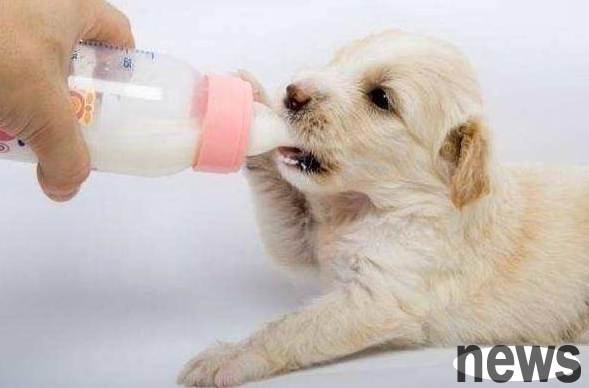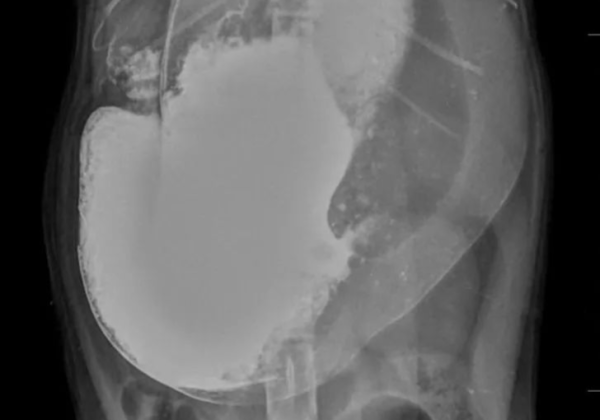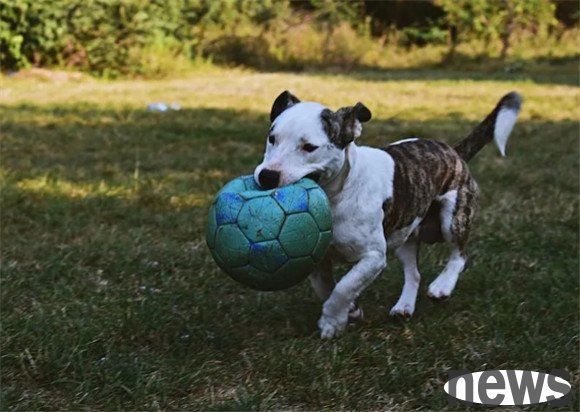What adverse reactions do dogs tend to have after drinking milk?
Many owners drink milk for their dogs because they think milk is rich in calcium and can supplement nutrition; many people also think that dogs don’t like to drink water but like to drink milk, which can be used to replenish water.
But the facts are often not as good as the owner. A few days ago, a golden retriever named Sunny, whom the shoveler knew, suddenly started vomiting. When he went to the hospital for examination, he found that it was an acute gastric ulcer. Poor Sunny vomited as soon as she ate.
The doctor asked Sunny about his feeding at home. When he heard that Sunny drank milk every day, he immediately pointed out: Don’t give his dog milk!
Sunny's owner didn't agree at first, saying that Sunny did not have diarrhea since she was a child, so how could she get stomach ulcers because of this? The doctor explained that drinking milk without diarrhea does not mean that there is no problem. Drinking milk for a long time will make the dog's stomach and intestines very sensitive, which will easily cause acute gastrointestinal diseases such as gastric ulcers.
There are many dog friends around the poop owner who drinks milk for their dogs every day, so after hearing about this, I immediately checked the information. Today I will share with you why dogs are really not suitable for drinking milk.
What adverse reactions are likely to occur when dogs drink milk?
The most common occurrence is diarrhea and vomiting, which may also be accompanied by bloating and stomach pain. There are two main reasons for these adverse reactions:
1. Lactose intolerance, 2. Milk allergies.
Can't drink milk? Why is this?
Why do dogs develop lactose intolerance?
The content of lactose in milk is very high, and decomposing these lactose requires a special digestive enzyme in the dog's body - lactose enzyme. When dogs are born, they produce a large amount of this enzyme, so they can digest and decompose lactose in breast milk normally. However, as the dog grows up, the ability to produce this enzyme also decreases, which will lead to the inability to decompose lactose in milk.
When a dog drinks milk, indigestion lactose will pass through the dog's gastrointestinal tract and enter the colon, causing diarrhea, and the bacteria produced by diarrhea will ferment in the colon, causing bloating and discomfort.

What the hell is milk allergic?
In addition to high lactose, milk also contains a special protein called A1 casein. This protein will form undiluted coagulation under the action of gastric acid, which aggravates the symptoms of lactose intolerance. Its manifestation is that dogs immediately get diarrhea after drinking milk. This serious adverse reaction is also called "milk allergies".
If you don’t have diarrhea, is it okay? A big mistake!
Although some dogs have a strong ability to withstand lactose, the process of digesting lactose and casein itself can also consume the stomach and intestines. Over time, the dog's stomach and intestines will become very sensitive, and intestinal diseases such as acute gastroenteritis or gastric ulcers are very likely to occur during seasons or food changes.
"Mom, stop feeding me milk..."
Although milk is nutritious, if you have to pay the price of vomiting and diarrhea from the dog, I will definitely not accept it!
Is there no way to supplement nutrition without harming the stomach and intestines? The advice given to Sunny's treatment doctor is: feed yogurt or use goat's milk instead of cow's milk.

Yogurt will turn the lactose part of the milk into lactic acid and other organic acids during the fermentation process. The lactic acid bacteria itself will also produce a large amount of lactase to help the gastrointestinal digestion of lactose. In addition, casein will also be hydrolyzed during the fermentation process to avoid the problem of milk allergy.
But here is a problem: yogurt on the market is generally made of flavored milk with too much sugar, not real yogurt, with little nutritional value left, and may also cause obesity and dental problems of dogs.
If you can make your own yogurt, that is the best. If you can't, it is recommended to use the second method - use goat's milk instead of cow's milk.













